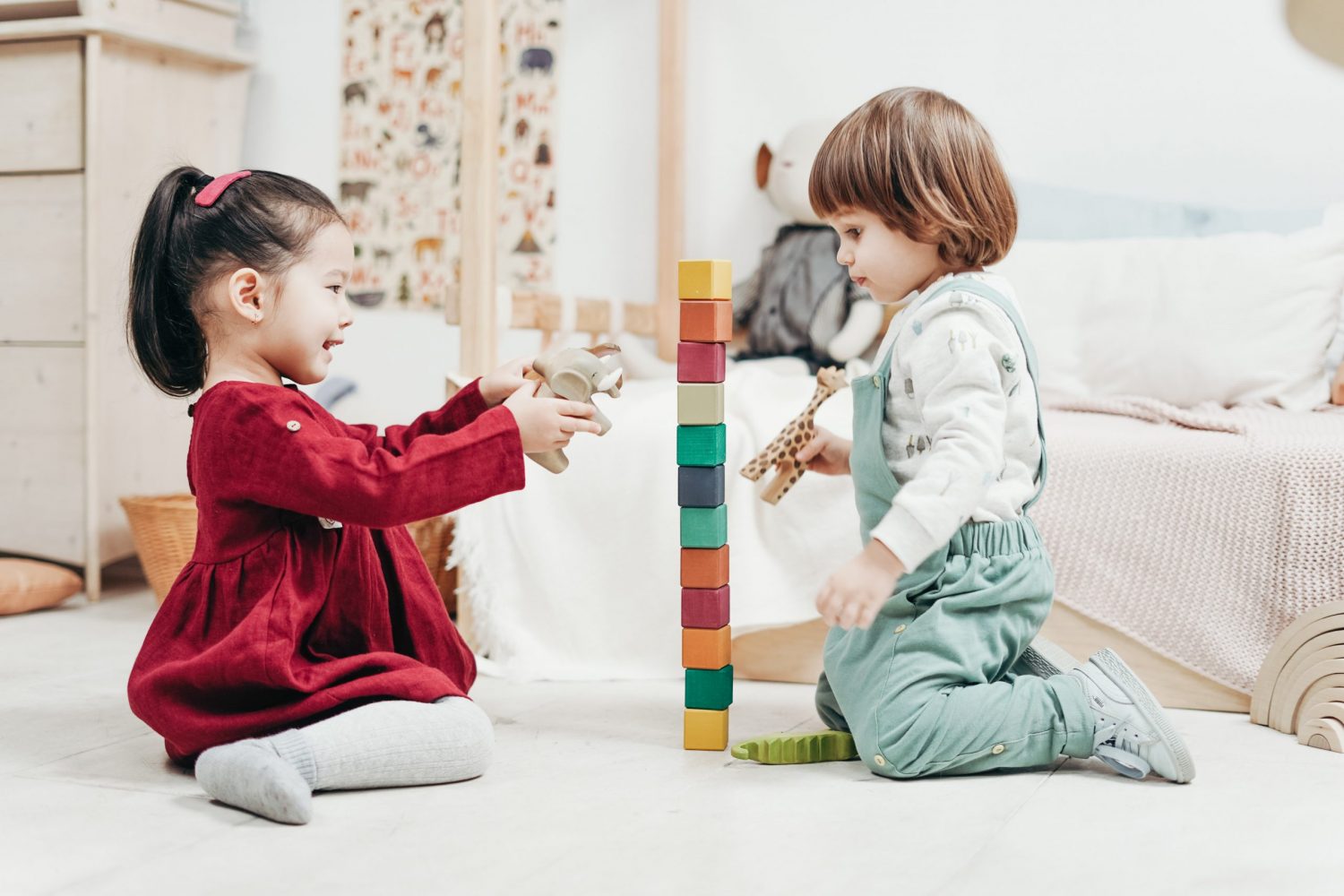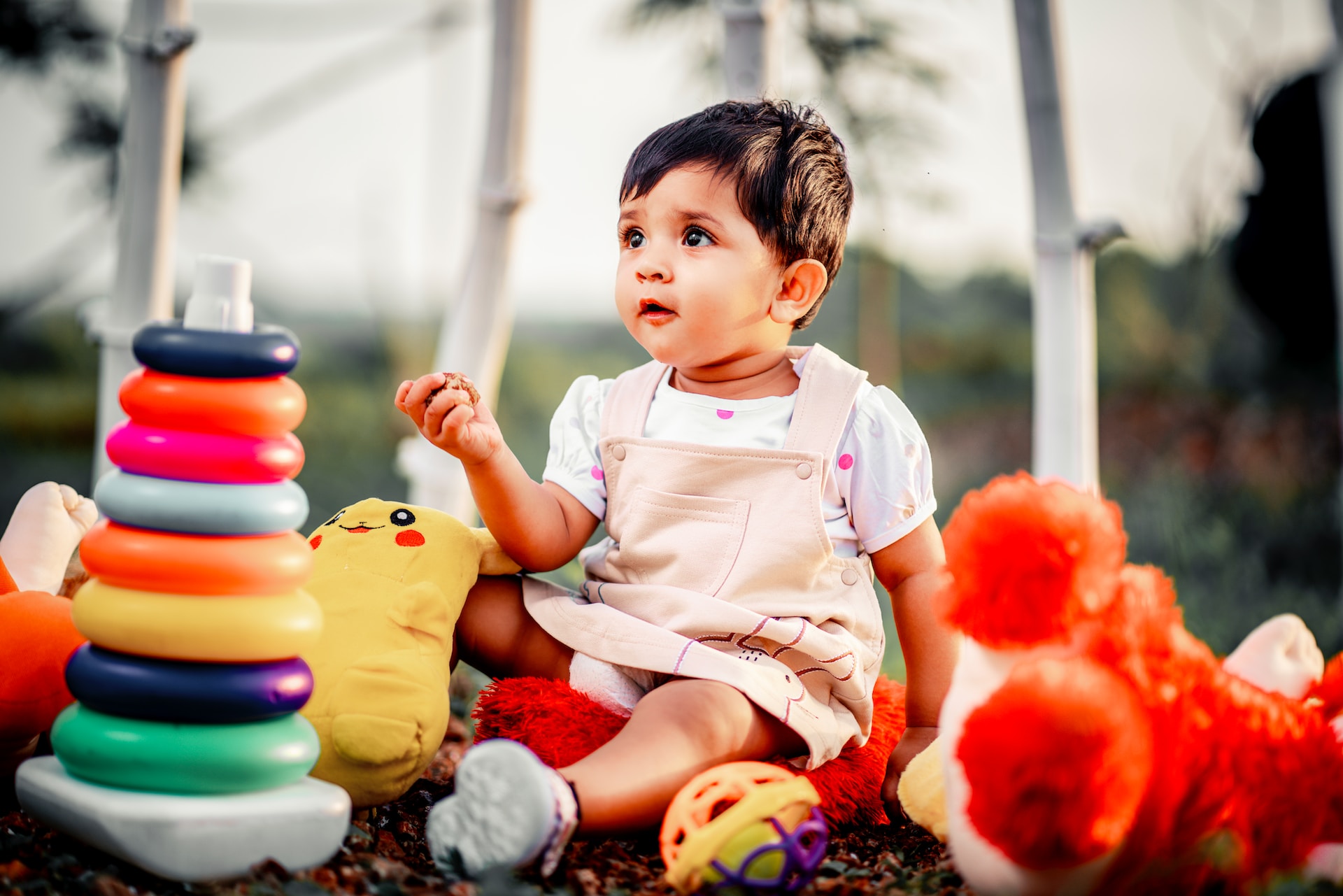Whether you are a new parent or have plenty of experience dealing with kids, you probably have an idea of what it is like when a toddler throws a tantrum. Bad tempers can start as early as 2 years old. That is the age when your baby begins to show strong emotions, and sometimes they are negative emotions.
This makes many first-time parents question what they are doing wrong, and why their 2-year-old can become so mean to them.
If you find yourself being in such situations repeatedly and you start to have this self-doubt in your parenting skills, you are not alone. I remember having so many rough days and I even shed tears because I thought my toddler girl doesn’t love me. “Why is my 2-year-old so difficult? What am I doing wrong? Am I a lousy mother?” These were the questions that kept coming into my mind.
2-year-old is an age at which toddlers start to display and express their emotions. They start learning to speak more words and enjoy moving around on their own. At this age, they are very eager to express their choices and their personal opinions and are not shy to act on their own. If there is some resistance towards their desires, well, they can make a big deal out of it and end up crying or throwing tantrums.
We all hear other parents say, “Don’t worry about it. Tantrums are normal. We’ve all been there.” Even though it is normal behavior among most kids, it can be quite an unpleasant experience especially if your toddler acts up and is mean to you in public places.
In this article, we will go through the reasons that a 2-year-old can be difficult or even seems heartless to you. I will also share some tricks on how you can deal with it. There are also some things you can do to help minimize your child’s aggression and mean behavior towards you and others.
Related Article: What to Teach A Two-Year-Old

Reasons Why Your 2-Year-Old Becomes Mean to You
Before start to looking for solutions, let us understand the root of the problem. Let us talk about some of the key triggers that make your once innocent little one defiant and challenging to deal with.
1. Your 2-Year-Old Craves Your Attention
Babies and toddlers love their parents’ attention. Whether it is good attention or bad. They love to be in the spotlight.
We as parents can get too busy with our schedules and many times we don’t even realize it. Though not intentional, we sometimes forget to pay enough attention to our kids and other family members. That is when your two-year-old begins to feel ignored, and this can lead to negative feelings.
Once your toddler feels that he craves your attention, he will find creative ways to get it! For example, he may pick up a toy and invite you to play with him. Or he may open up his arms and ask for a big hug. But, sometimes his creative little mind decides to do something not-so-nice. For example, he may throw food on the floor even after you repeatedly told him to stop doing it. Or he may lie on the floor and kick his legs and scream at the same time.
Parents are human beings, too, and we are also emotional animals. When your child behaves in a nasty way, especially in public, you naturally become upset or angry. It is almost impossible for us to ignore our children when they have a meltdown. When we react, we give exactly what they need – attention. And they think that their tricks work and they are rewarded to continue doing the same next time.
2. Your 2-Year-Old Does Not Know How to Express Her Emotions
Though 2-year-olds can speak more words, move around freely, and know how to express their different emotions, they do not yet have the ability to control or harness their emotions and actions.
2-year-olds can be expressive but they don’t exactly know how to express their emotions in the right way. The inability to make their parents understand what they want can make them frustrated, irritated, and distressed. These strong emotions can make your little one a bit aggressive sometimes.
So, instead of thinking about why my 2-year-old is so mean and temperamental, you may just need to be a little patient and realize that she needs your help to understand her and convey her feelings properly.
3. Your 2-Year-Old Is Learning by Testing the Limits
We all get excited and feel like a million bucks when we learn a new skill or gain something new. Toddlers are no different. They also get excited when they feel that they can be independent individuals! They are eager to learn more about their new abilities, and all the new things and new possibilities in the world!
Therefore, your child may go a bit overboard to get the things she wants and determine that she can go anywhere she wants to go. Not only does she test her own physical limits, but also your limits when you show some opposition. Your 2-year-old may become a little stubborn and unreasonable when you try to stop her from doing dangerous things.

Dealing with Your Mean 2-Year-Old
Now that we have more understanding of why a 2-year-old can turn into a meanie sometimes, let’s explore some effective methods we can employ to deal with such behaviors.
1. Stay Calm When They Act Out
When a 2-year-old is acting in a mean way, the very first thing you can do for your toddler and yourself is to remind yourself to keep calm. I know it is difficult! If you, as an adult, and many times as a role model to your children, can not stay calm, you are very likely to make the situation worse or even set up a bad example for your little one.
There are many things you can try to stay calm. For example, what worked best for me when my kids were little was to force myself to count to ten. By counting numbers, I trained myself to delay my first reaction, which normally was not a great reaction. This gave me a chance to cool off and compose myself.
What worked for many of my other friends was to just walk away quietly without any reaction. Of course, you should only do this when you are certain that your child is safe and won’t cause any harm to themselves or others. Walking away is an effective trick to disconnect and disengage.
So, as a parent, it is important not to react negatively right away to children’s tantrums. Dealing with kids’ tantrums is also an opportunity for us to learn to control our own emotions.
2. Discourage Aggressive Play
Staying calm is important. However, keep in mind that it does not mean that you should ignore your child’s aggressive behaviors. When you notice that your child is hitting you or others, discourage them from doing so.
There are other ways for kids to play aggressively. It does not always involve another person. For example, your child may hit one toy with the other while doing pretend play. This may seem normal to many parents, but without proper guidance, this can lead to aggressive behaviors. It may even result in your child being violent as they grow up.
Therefore, it is important to know when you need to interfere and discourage aggressive behavior. Let your child know in a calm and strict manner that aggressive play and hitting are not allowed.
3. Identify Your Toddler’s Triggers
Just like adults, kids can also respond to emotional triggers that can lead to rude behaviors and negative emotions. These can be certain sounds, a bad memory, something they do not like, or even people around them they don’t know or dislike having around.
Your 2-year-old can also become difficult or mean due to some triggers related to their physical well-being. For example, they may feel tired, hungry, or uncomfortable.
As a parent, we need to be observant and pay attention to what our child likes and dislikes, and what could be triggering his mean behavior.
4. Give Warnings When Your Child Is Acting Out
Giving feedback to our children is part of our responsibilities as parents. If a child acts aggressively and no one tells him that this type of behavior is not appreciated or allowed, the child would think that they did not do anything wrong. Though a two-year-old is still a toddler, they can learn a lot from parents’ or teachers’ feedback.
As our children grow up, it is our job to help them differentiate between right and wrong.
When your toddler gets upset and throws a tantrum or becomes mean to other people, you can first try to connect to her “emotional brain” by acknowledging her negative feelings and helping her to feel better. Once she is calm and happy again, then connect to her “logical brain” by telling her how she behaved was wrong, and that she should learn to refrain from such behavior in the future.

Minimize Your 2-Year-Old’s Mean Behaviour
We can also learn to be proactive and take steps to prevent aggressive behaviors from happening. Here is what you can do to minimize your 2-year-old’s mean behavior,
1. Be Consistent in Your Rules and Actions
If you set up house rules to discourage negative behavior, it is important to stick to them. What’s also critical is to make sure that other parents or adults in the house comply with it. Giving a child conflicting messaging can trigger confusion and make the situation worse.
As children grow up and experience new things, they may not yet possess the ability to differentiate between right and wrong. Therefore, it is important for parents to make rules clear to encourage good behavior and avoid negative ones.
I know it can be difficult but it is very important to be firm on the rules you set up. Otherwise, your little one will lose respect for these rules or even you. Let your child know that there are limits to what they can and cannot do.
It may take time for your little one to learn how to obey the rules but they will eventually get used to them, as long as you remain consistent.
2. Avoid Negotiating with Your Toddler
Negotiating with your toddler when they act up may lead to negative consequences. It may sound harsh but it is true that children can be like terrorists sometimes. Giving in to their demands may encourage them to behave the same way in the future again.
For example, your little one may insist that she has to watch Youtube videos during mealtime. You may feel tempted to let her watch for 10 minutes, hoping that she can eat all her food quickly while watching some clips. This never works out. In the case of my daughter, she will watch for 10 minutes and barely touch her food. While 10 minutes is over, she will cry hysterically if we do not allow her to continue. Sometimes, 10 minutes becomes 30 or even 40 minutes.
Therefore, it is important to be strict at the beginning. When we set up the right expectation, kids will learn not to ask again because you will not bend the rules or give in to them.
3. Let them problem-solve to deal with challenges
Another thing you can do for your little one is to let her solve the problems by herself when she deals with a challenge. At 2 years, kids are learning a lot and it’s natural that they run into situations that are new to them and they are not used to. This can make them frustrated or upset.
Sometimes, if you just take a step back and let your child solve those challenges without interfering, they may eventually figure things out without feeling that you don’t trust their abilities. This process also helps them develop problem-solving skills and become confident.
Help your child where needed but restrain yourself from helping too much. This can help your 2-year-old become independent and confident as they overcome challenges on their own.
4. Give Your Child Positive Feedback When They practice self-control
Appreciation is the best way to get your child to do something you want him to. When your little one demonstrates the ability to control his strong emotions or physical actions, reward him with some positive responses. You can praise them by saying “Well done!” “Good job!” “Mommy is very proud of you!”, or you can give them a hug or some nice snacks to show that you are pleased with what they did.
We all respond well to positive reinforcement, and so do kids. Positive feedback can help encourage kids to continue doing good things or behaving properly. In the long run, this can bring a positive change in their temperament or personality.
5. Lead by example
Many times, the first teacher in a child’s life is ourselves. Children live with their primary caregivers all the time and learn things by observing them.
So if you are used to getting frustrated easily or displaying strong emotions, your child will imitate the same behavior unknowingly. It is important for parents to practice self-control and not show emotional outbursts in front of their children.
Summary
We all want our kids to be calm, friendly, and well-mannered. But that is reality, they are just like us, they are emotional beings and need to express how they feel. And children can have very strong emotions.
Kids are always learning and exploring new things. The learning process is not always smooth and easy. When they face setbacks, they can become frustrated, unhappy, or discouraged. If their negative emotions are not channeled properly, they can become mean to you or those around them.
But the good news is that there are things we can do as parents. As we discussed in the article, we should respond with understanding, care, and willingness to help.

Dr. Pierrette Mimi Poinsett MD is a pediatrician with over 30 years of experience including 19 years of clinical practice. She is active as a medical consultant, serving as an advocate for infants, children, and adolescents with disabilities, chronic illnesses, learning differences, and behavioral issues.




![Best Outdoor Playset for 4-Year-Olds in [current_year] 9 Best Outdoor Playset for 4-Year-Olds](https://littlediscoverer.com/wp-content/uploads/2021/01/Best-Outdoor-Playset-for-4-Year-Olds.jpg)
![Best STEM Toys for 5-Year-Olds: [current_year] Updates 10 Best STEM Toys for 5-Year-Olds](https://littlediscoverer.com/wp-content/uploads/2020/12/Best-STEM-Toys-for-5-Year-Olds.jpg)
![Best Scooter for 2-Year-Olds in [current_year] 11 Best Scooter for 2-Year-Olds](https://littlediscoverer.com/wp-content/uploads/2021/03/Best-Scooter-for-2-Year-Olds.jpg)